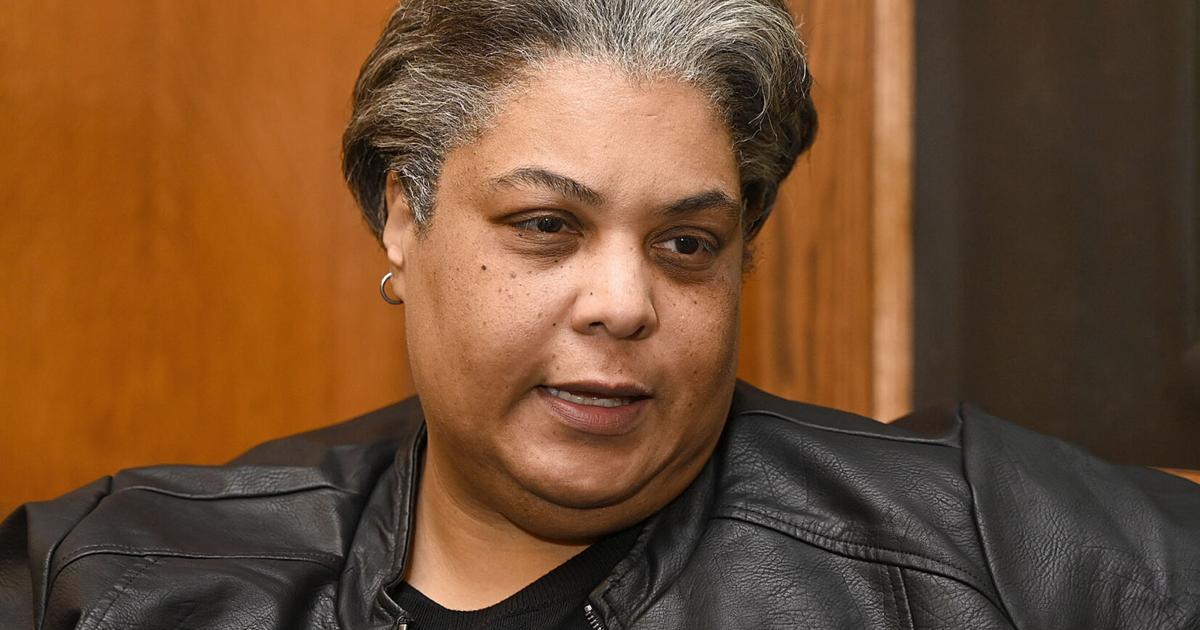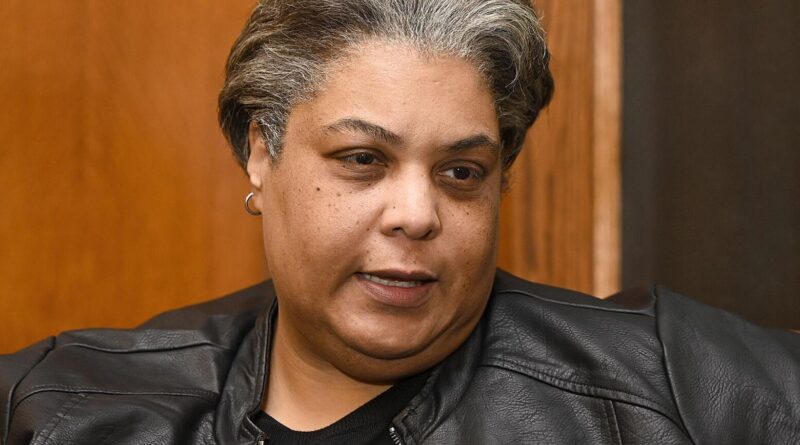ISU speaker disagrees with changes to AP African-American … – Terre Haute Tribune Star

Award-winning author Roxane Gay described as “pathetic” the College Board’s revision of its new Advanced Placement course on African-American studies, which downplays some components that drew criticism from conservatives including Florida Gov. Ron DeSantis.
DeSantis had threatened to ban the class in his state.
Topics such as Black Lives Matter, slavery reparations and queer theory are no longer subjects to be taught in the course, according to Associated Press. They are included only on a list of topics that states and school systems could suggest to students for end-of-the-year projects.
“I think it’s pathetic that the College Board capitulated to one governor,” said Gay, who was in Terre Haute on Wednesday for a presentation at Indiana State University as part the University Speaker Series.
Her appearance helped kick off the university’s Black History Month events.
A New York Times bestselling author, Gay is known for her no-holds-barred exploration of feminism and social criticism.
She has written five critically acclaimed books — Hunger: A Memoir of (My) Body; Bad Feminist, a collection of essays; two short story collections, Ayiti and Difficult Women; and a novel, An Untamed State.
The official framework for the Advanced Placement African-American studies course became public Wednesday, which also was the start of Black History Month.
“I think history for all races and ethnicities is an ongoing project and I think children need to be educated in all of it, including Black history,” said Gay.
Under the revisions, “expunged” writers and scholars, according to the New York Times, include Ta-Nehisi Coates, the author who has made the case for reparations for slavery, and Kimberlé W. Crenshaw, a pioneering scholar of Critical Race Theory.
To remove someone like Coates from a black history course “is a shame. That means these kids, who are very bright — anyone who takes an AP class is motivated and wants to learn — that they are going to be deprived of that, at least for now, in this particular class,” Gay said. “I think it’s a real loss, because he makes a really interesting and provocative argument in his essay, ‘The Case for Reparations.’”
Coates is suggesting “perhaps we should consider finding a way of repairing the original stain of this nation … I don’t understand why that’s so threatening to certain politicians,” she said.
She also addressed nationwide efforts to ban or limit books. In Florida, teachers in some public school classrooms have wrapped bookshelves in paper — or removed books from shelves — while district officials launch a review of the texts’ appropriateness under a new state law.
The law, which took effect in July, mandates that schools’ books be age-appropriate, free from pornography and “suited to student needs.” The books must be approved by a qualified school media specialist.
Commenting on the trend, Gay said, “I think book banning is really a lazy, lazy practice. I think it’s appalling. I think it’s a disservice, that the very same people who cry about freedom of speech then want to deny people their freedom to speech by banning books.”
She said Kurt Vonnegut, Indiana’s favorite son, “spoke very well to this in Fahrenheit 451. It’s always surprising to see certain things repeat, in terms of history, that nothing has been learned from McCarthyism and things like that.”
She added, “We have to fight these kinds of political over-reaches as often and as loudly as we can.”
What is Gay’s advice to Indiana State University students who are witnessing efforts nationally, in K-12 education, to almost erase certain aspects of Black history?
“I would tell young people that it doesn’t matter what your political beliefs are, you are entitled to them. But you should worry about anyone who wants to keep certain kinds of knowledge from you,” she said. “You should really challenge anyone who’s that incurious. You should be curious about the world, no matter what your opinions are and what political stances you hold.”
What American society is seeing right now from many politicians “is a real resistance to curiosity, a resistance to knowledge, a resistance to diversity of thought,” she said.
She’s no stranger to the college classroom. She’s held professorships at Eastern Illinois University, Purdue University, and Yale University; she taught in Indiana for five years.
College students today “are incredible,” Gay said. Many of the students she taught in Indiana came from conservative backgrounds. “But they are so smart. They are so open to knowledge. And, knowledge is power,” as cliche as that may sound, she said.
“I really think it’s important for students here to recognize that you don’t have to change what you believe or what you value — you just have to be open to learning,” she said. Students should continue to engage with Black history and other topics that are being framed by some as unnecessary.
“I think we should trust young people. I think they have really good instincts, and as someone who teaches college, I’m deeply encouraged,” she said. “I love my students. They are hilarious and so smart, and they are willing to take risks. I think we should put a lot more faith in them.”
